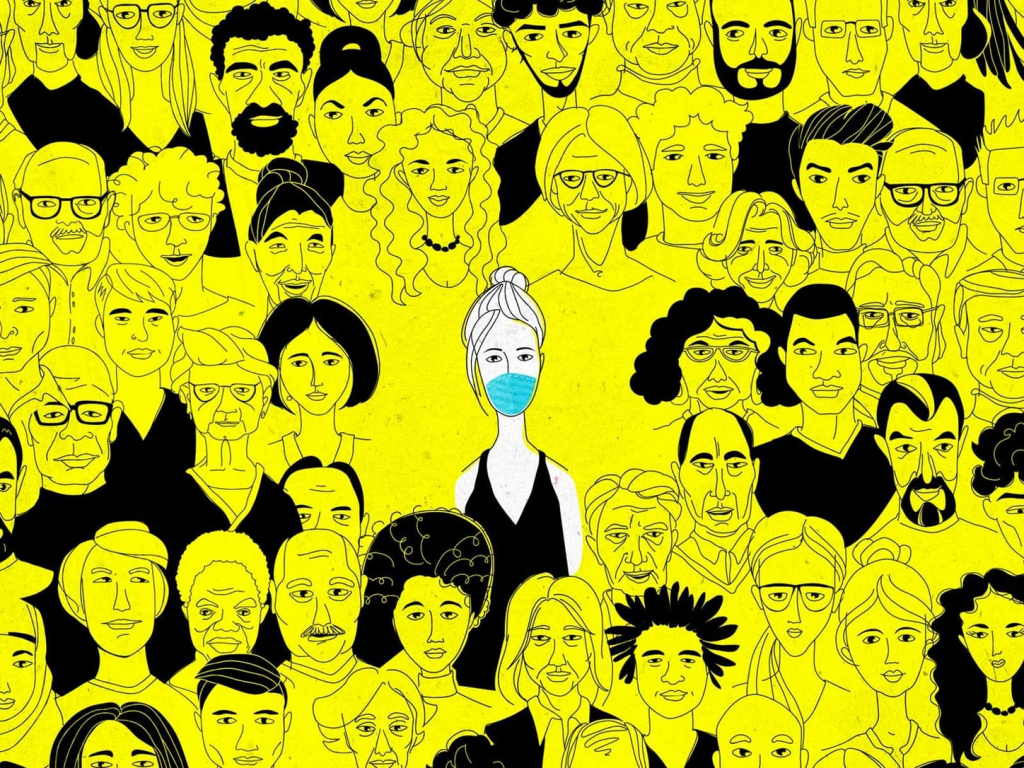In our neighborhood, my family is an outlier. In late March, when local schools reopened for two shortened days, my eight-year-old daughter was not in attendance. When her afterschool and weekend lessons resumed towards the end of March, I kept her home from all but piano (though I would have preferred that she missed that, too).
We live in Kamakura, a city usually overrun with tourists, where we run a small inn out of our house. Year-round, but particularly in the winter months, it’s Chinese tourists that make our livelihood possible. Since January, they’ve been scarce, and without them, the city is quieter than usual. Our house is so empty that it practically echoes.
Becoming a neighborhood oddity
It’s hard to ignore what’s happening in China when its people are your bread and butter, so COVID-19 has loomed large on our radar since early in the new year. As it spread through Asia and then into Europe and North America, my anxiety levels rose at the thought that guests could bring it into our house, from where we would take it into our community. As local transmission increased, that concern extended to any and all interactions leaving us infected and capable of spreading the illness further.
“People here have been conditioned to believe that the virus only comes out at night and on weekends.”
And so I made the unpopular decision that we’d pull back from our regular schedule, closing down the inn on days we had no reservations from late February to early March, not attending what I deemed to be ill-advised time at school mid-March, missing outside-of-school lessons when they restarted, skipping the gym, avoiding the playground (our toddler remains furious), and basically cutting out almost everything unnecessary.
In doing so, we have become a neighborhood oddity, surrounded by Kamakurians who are so nonchalant that I’m sometimes left wondering whether we’re living on the same planet.
Why is everyone here so relaxed?
The other day, I ran into one of my daughter’s instructors on my way to the post office. Now, I thoroughly enjoy this person—they embody everything a parent looks for in an instructor. True to form, they asked after my daughter, who had missed the previous week’s lessons.
“Well, I’m one of the more concerned people, to be honest,” I said.
“Oh, there’s no new coronavirus in the classroom,” they replied.
“It’s not just that,” I said. “The possibility exists that we could have it and not know, and pass it on. After all, many people are asymptomatic.”
“Oh, no need to worry about that!” they replied with a dismissive laugh and hand-wave.
Now, this person has been very kind to my family, and I would never dream of badmouthing them. But they do, unfortunately, perfectly illustrate the oblivious attitude I find so prevalent here. Obviously, not just here, but more and more, it feels like the act of brushing this illness off as something that will happen to “someone else,” or acknowledging its virulence without taking adequate measures to mitigate its spread, is becoming peculiar to this country.
People here—and let me be clear that it’s not everyone—have been conditioned to believe that the virus only comes out at night and on weekends, and even then, mostly in seedy or boisterous places. They have been told that if they avoid situations where all three “Three Cs” are present (closed spaces with poor ventilation; crowded places with many people nearby; and close-contact settings, such as conversations at close proximity), they will be fine.
The result of this misinformation—regularly parroted by government officials—is that many people still do not appreciate how widespread COVID-19 likely is, and how easily it can be transmitted. Nor do many seem to understand how serious an illness it can become. They still socialize with others, have have play dates at the park, and get right in your face. On walks along the seaside promenade over the last few weeks, my kids and I have regularly passed by cheerful mamatomo picnics involving multiple mother-child units.
“Many people still do not appreciate how widespread COVID-19 likely is, and how easily it can be transmitted.”
It’s incredibly frustrating to see, and it is even more frustrating when people brush off the efforts my family is making as unnecessary. And Japan being what it is, it is incredibly difficult to assert oneself in case one damages the all-important ningen kankei (“human relations”). Every time I politely attempt to decline or excuse myself and the kids from something, I feel like I’m walking on the slimmest of ropes, ever so close to falling into the abyss of a neighborhood pariah. Compounding things is the concept of enryo, whereby people think I’m holding back to be thoughtful, and so attempt to put me at ease by insisting. It’s a bizarre dance that, in the current climate, is even more ridiculous and maddening.
On April 7th, Prime Minister Abe finally declared a state of emergency for part of the country, our prefecture included. But unlike in other countries, all prefectural governors can do is strongly request that people obey. Many will try, but thanks to the way the pandemic has been framed thus far, will not do enough. And plenty will make no effort to obey at all, just like elsewhere. But in Japan, we’ll just have to put up with the “covidiots” and hope they won’t kill us all.
There is some good news, though: On April 6, when our school had its opening ceremony (which, much to her dismay, my daughter did not attend), she was not one of only two students missing from her class, as had been the case for March’s shortened schooldays. We heard through the grapevine that around ten students from her class were absent due to COVID-19 concerns. Perhaps our community is starting to see the light.









